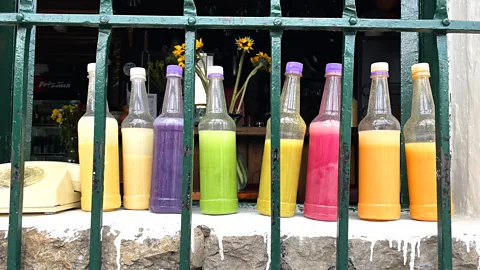Chicha: The banned drink of Colombia
Lina Zeldovich
Features correspondent
 Lina Zeldovich
Lina ZeldovichVillainised, stigmatised and still officially outlawed, the indigenous beverage chicha has been making a comeback.
"You know you're breaking the law by drinking this">window._taboola = window._taboola || []; _taboola.push({ mode: 'alternating-thumbnails-a', container: 'taboola-below-article', placement: 'Below Article', target_type: 'mix' });
